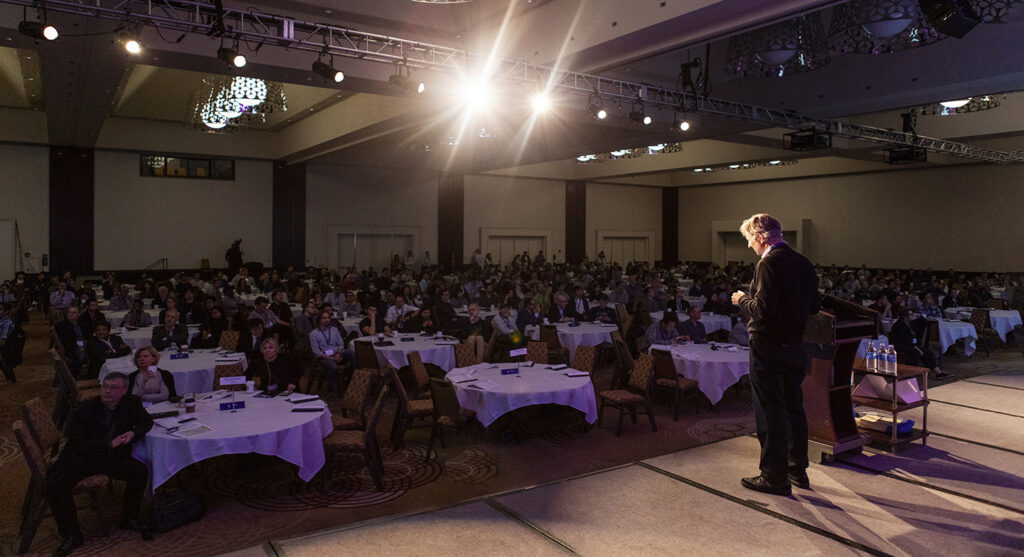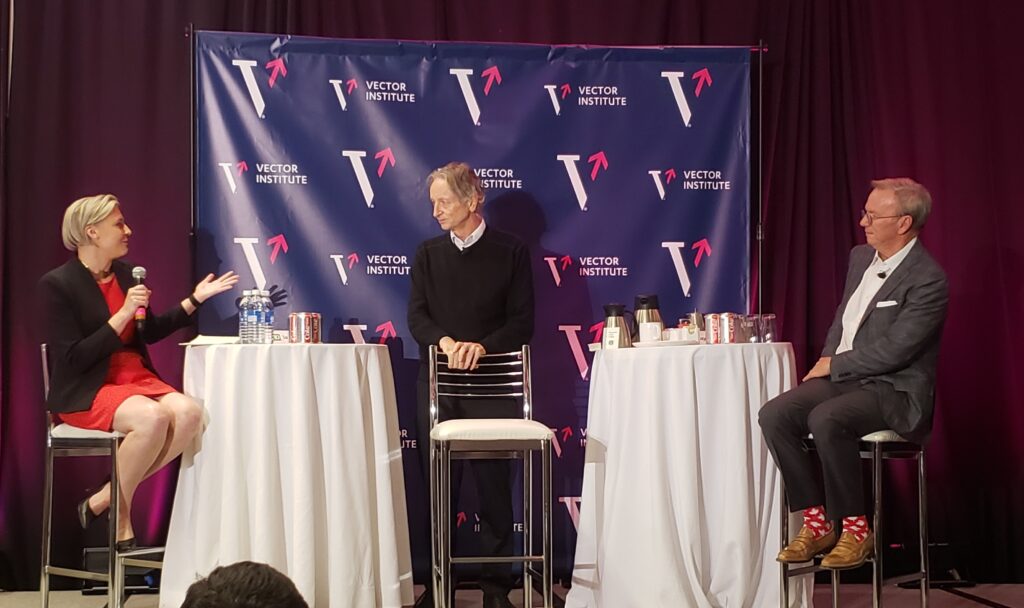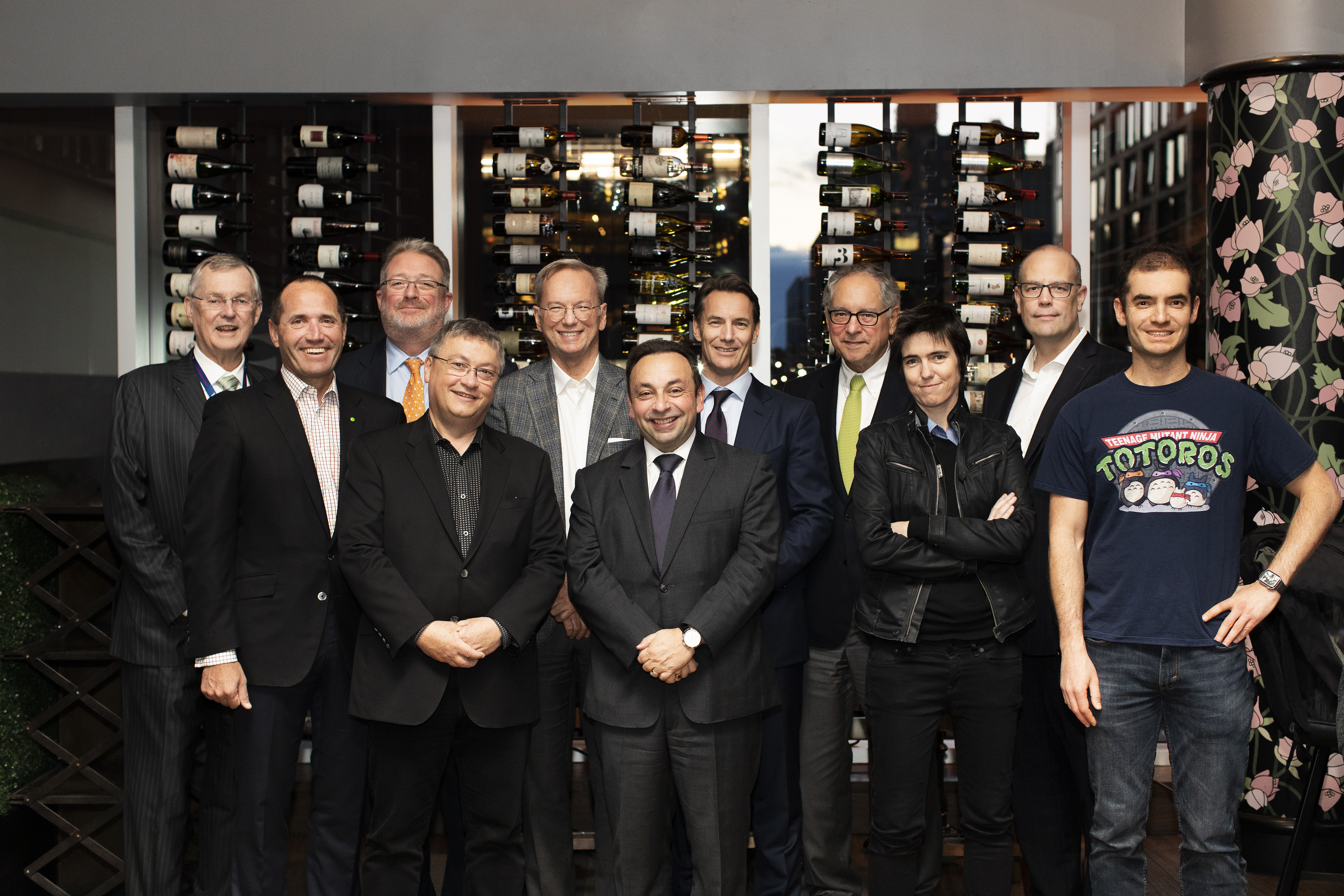AI community celebrates Dr. Geoffrey Hinton at Evolution of Deep Learning Symposium
October 23, 2019
October 23, 2019

International AI talent gathered in Toronto last week to share perspectives on how research and applications are evolving, and how researchers can continue momentum in the field based on historic accomplishments in deep learning.
The two-day Evolution of Deep Learning Symposium, hosted by the Vector Institute, was in celebration of Dr. Geoffrey Hinton’s leadership and foresight in the field. His four decades of work earned him the 2018 ACM A.M. Turing Award, alongside colleagues Dr. Yoshua Bengio and Dr. Yann LeCun. Dr. Hinton is Chief Scientific Advisor at the Vector Institute, Vice President and Engineering Fellow at Google, and Professor Emeritus at the University of Toronto.
Researchers from throughout the deep learning community gathered to celebrate Dr. Hinton’s contributions and achievements, presented posters showcasing the impact of his research across a broad range of topics, and heard from speakers spanning four decades of Dr. Hinton’s career and collaborators.
The line-up of talks given at the event was a testament to Dr. Hinton’s enduring influence in the field. Colleagues, collaborators, and former students of Dr. Hinton’s who have since gone on to make their own significant contributions to deep learning each spoke at length about Dr. Hinton’s convictions, curiosity, and friendship.
Dr. Hinton himself presented his Turing lecture, and remarked that “Turing is amazing because he spanned both connectionist and symbolic fields.”
The Symposium’s second day was capped off with an industry panel featuring a discussion of the benefits and challenges of productizing AI in Canada, and opportunities created for researchers in industry labs to test solutions at scale.

Panelists
Moderator
Celebrating foundational discovery and the power of good collaborators
The symposium’s highlight was a candid discussion between Dr. Hinton and Eric Schmidt, Technical Advisor at Alphabet Inc. and former CEO and Executive Chairman at Google. At a reception sponsored by TD Layer 6, the pair discussed how they’ve seen the field evolve and what excites them about the future, such as neutral networks with improved interpretability – especially in health care – as well as understanding the limitations of current techniques and pursuing capabilities such as self-supervised learning.

Both guests reminded the audience that Canada made its mark by supporting foundational research with long-term gains and abilities to tackle challenges such as rare diseases, crop science, financial fraud, and more.
Dr. Hinton credits the funding he received for full-time research as the reason he was able to establish a foothold and make strides in neural network research. He also spoke to the power of a strong research community, encouraging PhD candidates in the crowd to pursue their research alongside trustworthy colleagues who will be honest and further their work further by asking the right questions.
Leaders of the Vector Institute’s industry sponsors and special guests gathered after the fireside chat for a celebratory dinner.

University of Toronto faculty commitments honour Dr. Hinton’s work
Dr. Hinton’s advocacy for strong research communities was fitting, as the symposium was also the launchpad for an exciting announcement to expand Toronto’s deep learning community. In recognition of Dr. Hinton’s work, Vector Institute will work with the University of Toronto to recruit three new tenure-stream faculty positions in deep learning.
That news came on the heels of Vector appointing eight new faculty members and 29 faculty affiliates who also hold appointments at universities across Canada. These researchers now have access to a collaborative community based in Toronto’s MaRS Discovery District, along with computing resources to catalyze both foundational research and specific applications.
Altogether, these academic appointments will enhance Canada’s leadership in AI and support the growth of this dynamic field that Dr. Hinton has championed for decades.


